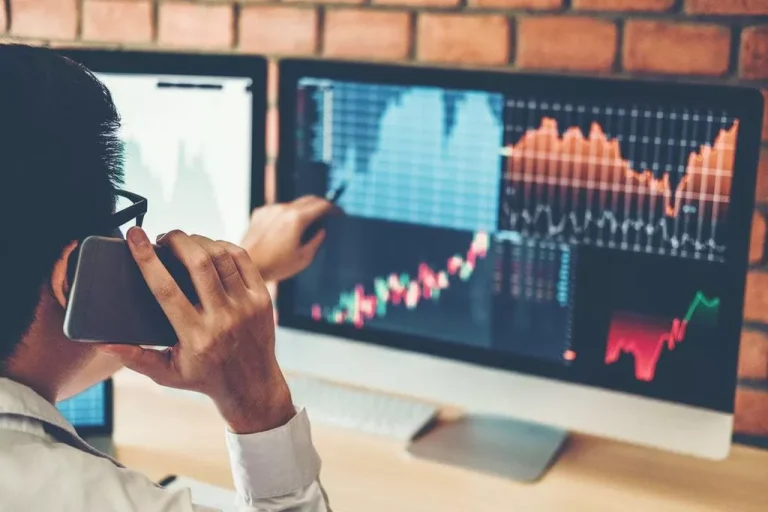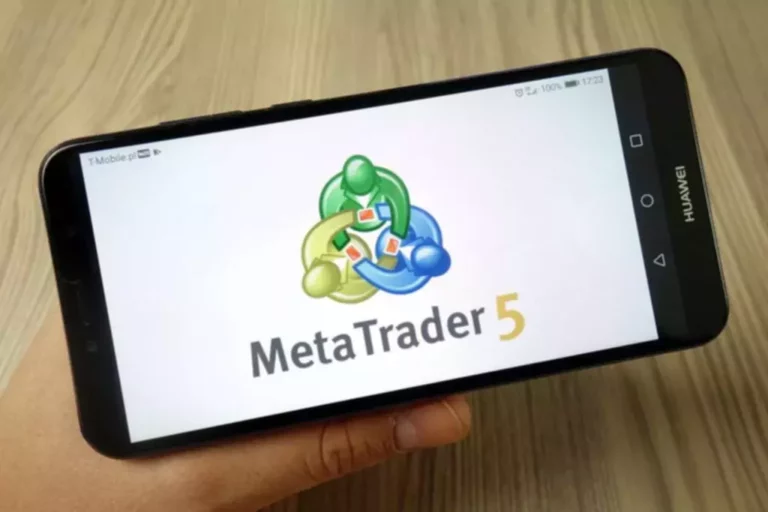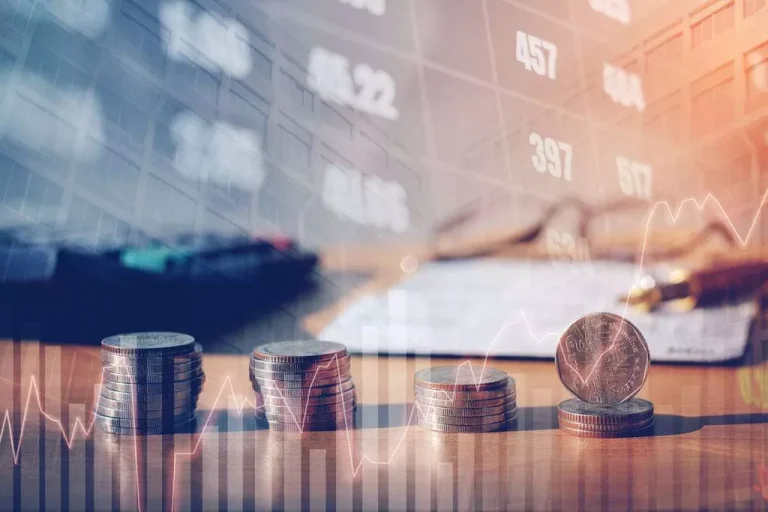Content
However, holding a position overnight incurs a cost, as the broker has to borrow the currency being traded to execute the trade. On the other hand, in the B-Book portion of the model, brokers stand to gain from their clients’ losing trades. By taking a position opposite to the trader, the broker benefits directly if the trade is not successful. Considering the high rate of unsuccessful retail forex traders, this aspect can become a significant source of income for brokers. Some Forex Financial cryptography brokers will charge a commission per trade, while others will charge the spread between the bid/ask prices.
More about these brokerage accounts (and why we chose them)
If a trader makes a significant loss, they may not receive any compensation, or they may even lose their job. Filippo Ucchino created InvestinGoal, a comparison site and educational portal for the online trading and investing industry. Through InvestinGoal, Ucchino helps users navigate https://www.xcritical.com/ the world of online investing and trading by providing trading guides, best brokers rankings, broker reviews, and broker comparisons. Filippo Ucchino is the founder and CEO of the brand InvestinGoal and the owning company 2FC Financial Srl. Filippo Ucchino started his trading career in Forex trading in 2005. He became an expert in financial technology and began offering advice in online trading, investing, and Fintech to friends and family.

Do forex brokers always act as counterparties to my trades?
- Brokers who get a commission from a trader are known as non-dealing desk brokers.
- Brokers are compensated in commissions or fees that are charged once the transaction has been completed.
- Yet another way that NDD forex brokers can make money is through your use of the trading platform itself.
- Conversely, if the interest rate of the currency you are buying is lower than the interest rate of the currency you are selling, you will incur a negative swap fee.
- Now, the broker pockets the difference between these two prices, which is the spread.
- We score each online broker against a set of criteria that factors in both the features offered and the actual user experience of using those features.
The more trades executed by the traders, the more spreads are paid, which increases the broker’s earnings. Spreads, Commissions, Overnight Swap / Rollover Fees and Back to Base are earnings coming from the Trading Fees, i.e., the earnings related to the trading activity of the broker’s clients. So, considering the other side of the coin, these are the items that translate most into forex brokers payment system trading costs for traders. In a variable spread liquidity pool, the amount of the spread will depend on how many orders are out there. When there is a major announcement such as the Nonfarm Payroll Numbers coming out of the United States, the spread will typically widen.
Use our account finder & get matched to your prefect investing, trading or currency account.
But active traders, particularly those who trade large quantities of shares frequently, often do. For our reviews, we look at each broker’s self-reported execution quality, which is defined as the percent of a broker’s orders that are executed at or better than the National Best Bed and Offer. This story provides a lot of hints on how trading with a retail forex broker works. An individual or business that facilitates the completion of transactions between buyers, sellers, or traders is known as a broker. They offer execution services and operate as middlemen in numerous industries. The majority of overnight fees occur when trading leveraged instruments, such as CFDs.

NerdWallet’s comprehensive review process evaluates and rates the largest U.S. brokerage firms by assets under management, along with emerging industry players. Our aim is to provide an independent assessment of providers to help arm you with information to make sound, informed judgements on which one will best meet your needs. Over 60 investment account providers reviewed and rated by our expert Nerds. Once the bet was made, Spider-Man could continue to make up prices in his favor. For example, he could say that GBP/USD has fallen 500 pips (even though it hasn’t), and Batman would be forced to bet at a loss. During the last bet made between Spider-Man and Batman, notice how the price of GBP/USD moved unfavorably against Spider-Man and he ended up not having the money to pay.

Because it is a global marketplace and takes place across a network of financial centers, there are trades happening nearly continuously five days per week, 24 hours per day. The first thing you need to know is what a forex broker is and does. As it turns out, there is more than one answer to this question and we will get into that here in a moment. Since a multiplier is borrowed money it makes only sense for the broker to charge you a small percentage as interest for borrowing their capital.
Getting familiar with these options will help you know where your money is going. Clearly, interest on margin loans is not going to represent a significant chunk of any forex broker’s main income streams. Now let’s turn our attention to some less common, yet still legitimate, ways that forex brokers are making money today. However, remember that these are not the only revenue streams that forex brokers have available to them, and we will cover this topic in a great deal more detail in later sections here. There are two main pathways through which forex brokers can make money. Remember our example earlier of the 47 forex brokers who were arrested late last year and their 1,000+ clients?
Forex brokers may also make money by marking up the bid/ask spread of currency pairs. This means they increase the spread above the market rate to earn additional revenue. Mark-ups are common among brokers that offer fixed spreads, and the mark-up amount varies from broker to broker. You should familiarise yourself with these risks before trading on margin. As a trader, you can choose to pay for several premium services offered by brokers. In this instance, brokers don’t hedge anything and instead accept all market risk, taking the position opposite to yours.
Do your due diligence and select a highly rated forex broker with transparent pricing, business practices, commissions and fees. Customers earn a small portion of that interest, usually in the form of high-yield savings account or checking account interest accrued only on the value of their account. That is why the Instagram trading craze has occurred—a lot of new brokers and a lot of new traders. In this way, affiliate marketing could be seen as a type of “quantity over quality” marketing program.
The mechanism operates with the broker imposing a specified charge every time a trader enters or exits a trade, which is clear and upfront. For example, a broker might charge $8 per lot, and if a trader buys one lot of EUR/USD, they pay a $8 commission. These are the business model foundations of practically all major forex brokers in the global landscape. The b-book model is a business approach where the broker acts as the direct counterparty to the client’s trades, which means if the client loses money, the broker profits and vice versa.
The benefit of this is that buying currency now won’t cost you any more in the future. The downside is that if the price moves in your favour, you will not benefit from the price reduction. The difference between a full-service broker and an online broker comes down to the level of service and how much you want to pay for that service. None of the brokers on our list are full-service brokers; they are all discount online brokerage firms. Your account choices boil down to a taxable brokerage account or a tax-favored retirement account, such as an IRA.
Within the industry, rollover fees are standard practice and brokers clearly outline them in their terms and conditions. Regulations ensure transparency in how brokers calculate and disclose these forex broker fees. Although practices vary globally, reputable brokers comply with regulatory standards that mandate the fair application and clear communication of any rollover fees charged to traders. Brokers use this method as it compensates for the cost of holding positions overnight. They often add a small markup to the fee, which serves as an additional revenue stream for them.
The two trades offset each other which results in the broker’s exposure to market risk being eliminated. All orders and trades entered through your broker’s trading platform are NOT executed on an external trading venue but are executed by the broker itself. After providing initial bonuses, brokers often experience an increase in trading activity on their platforms, leading traders to make additional deposits. Although this is one of the great misunderstandings in this industry, a forex broker always acts as a counterparty to every trade, even if a broker claims to be STP or ECN.
Forex brokers make money by charging a spread, which is typically a fraction of a pip (the smallest unit of price movement in forex trading). The spread varies depending on the currency pair being traded and the broker being used. In addition to spreads, forex brokers may also charge commissions on certain types of trading accounts.
This helps ensure that currency trading is ethical and fair for all involved. But these earnings remain quite minimal compared with the combined might of that (now twice) reinvested cash that is now earning interest for the forex broker itself. This is how the majority of brokers earn their money, regardless of what type of forex broker they happen to be (as per the broker classification information you just learned about earlier here). When you place a forex trade order with an ECN forex broker, that broker is only acting as the impartial platform through which various participants in forex trade orders can meet and interact. So on that cautionary note, read on to learn about making an honest living as a forex broker operating in the United States. Unless you don’t want to exchange currencies with random people on the street to make a buck, you need a forex broker.